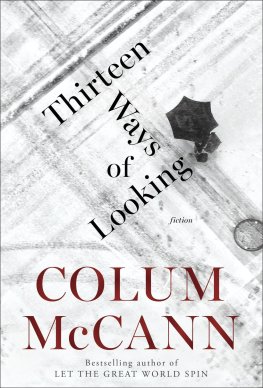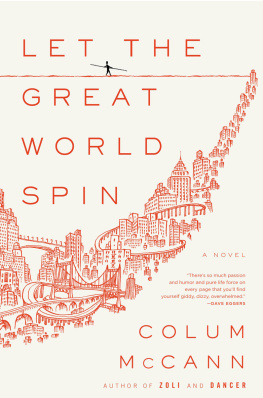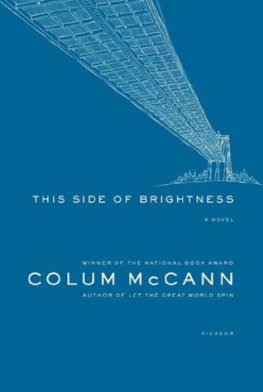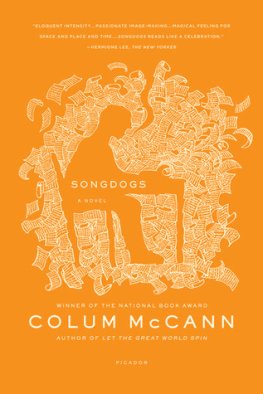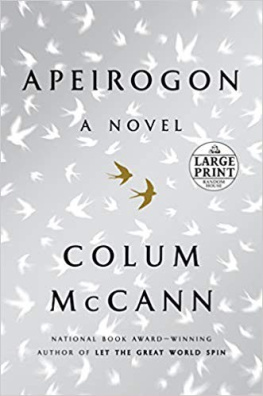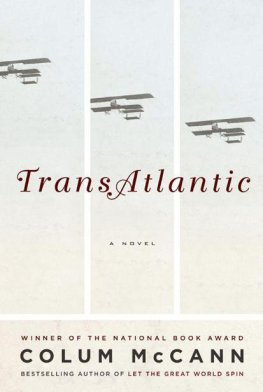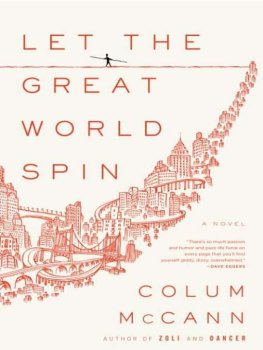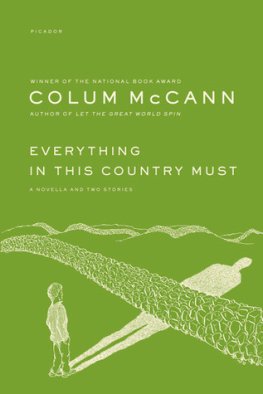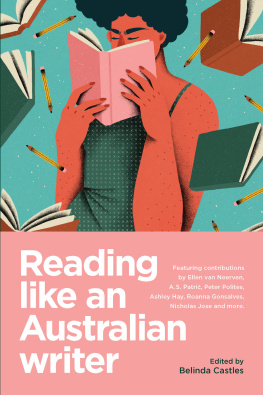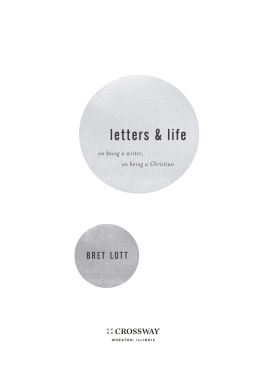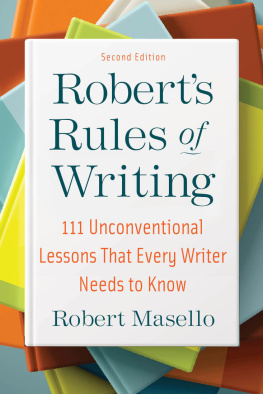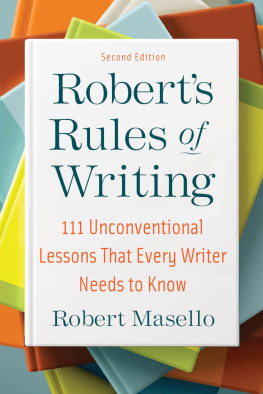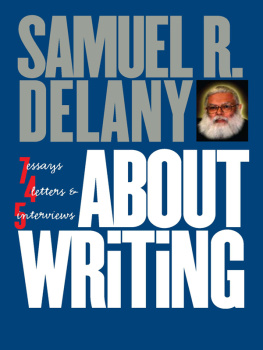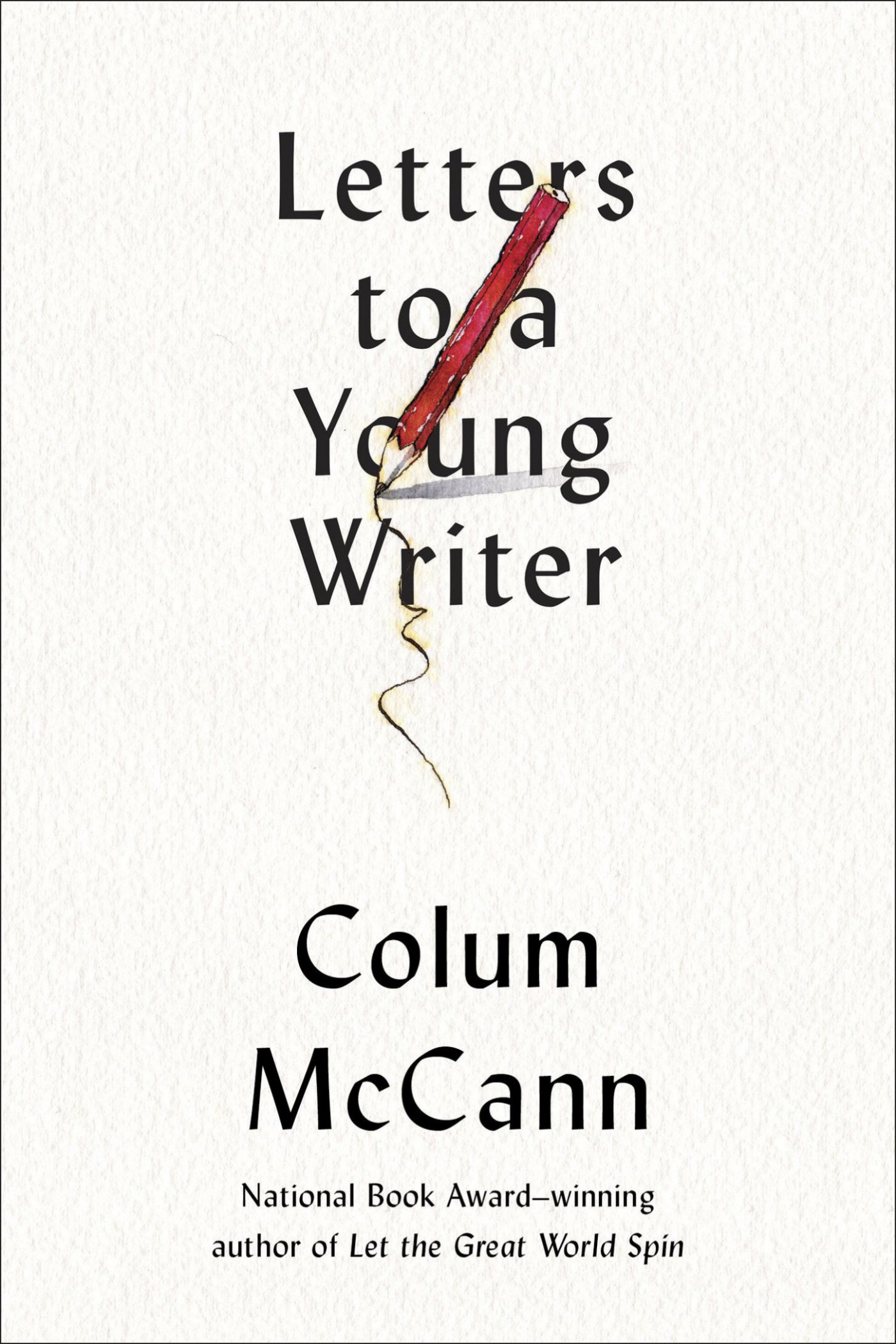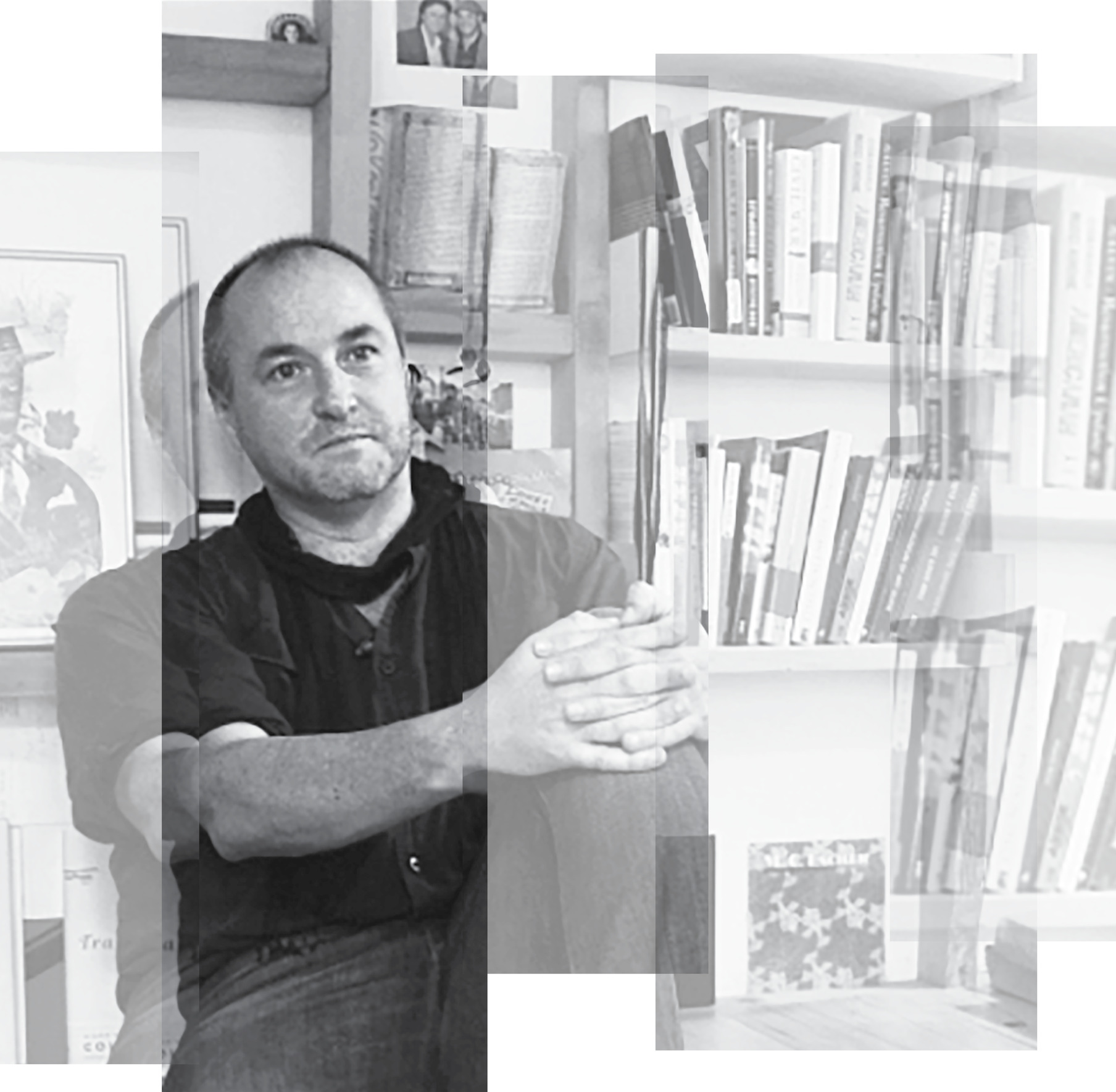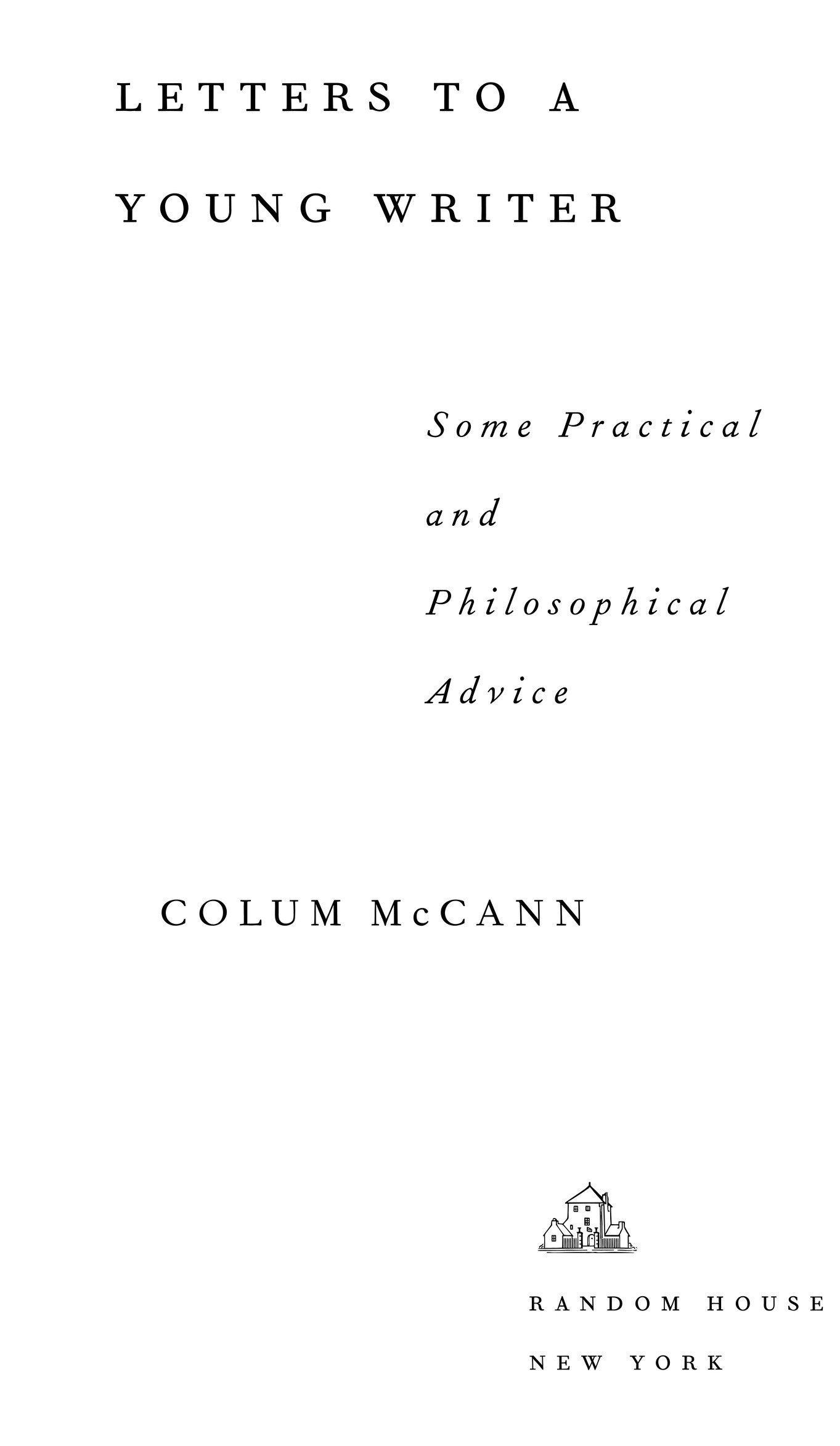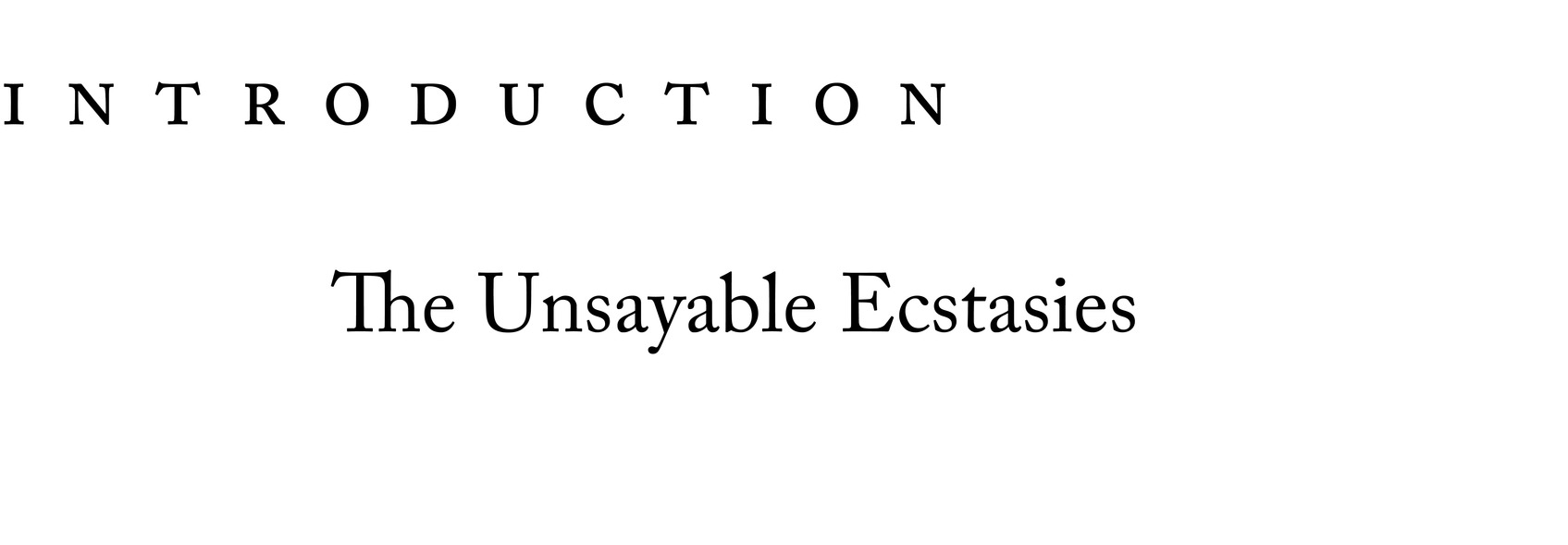All rights reserved.
Published in the United States by Random House, an imprint and division of Penguin Random House LLC, New York.
R ANDOM H OUSE and the H OUSE colophon are registered trademarks of Penguin Random House LLC.
N obody can advise you and help you, nobody, said Rilke in Letters to a Young Poet over a century ago. There is only one way. Go into yourself.
Rilke, of course, was rightnobody but yourself can help. In the end it all comes down to the strike of the word upon the page, not to mention the strike thereafter, and the strike after that. But Rilke was taken by the request from the young writer, and he corresponded with Franz Xaver Kappus in ten letters over the course of six years. Rilkes was advice on matters of religion, love, feminism, sex, art, solitude, and patience, but it was also keyed in to the life of the poet and how these things might shape the words upon the page.
This most of all, he says. Ask yourself in the most silent hour of night: Must I write?
Everybody who has ever felt the need to write knows the silent hour. I have come upon many such peopleand indeed many such hoursduring my writing and teaching life. Each year my first class in the Hunter College MFA program begins with the statement that I wont be able to teach the students anything at all. This comes as a bit of a shock to the twelve young men and women who have decided to devote themselves to the crafty, sullen art. These are among the smartest young writers in America, six first years, six second years, who have been chosen from a pool of many hundreds. I dont mean my opening statement to them every semester as an act of discouragement: it is, I hope, the exact opposite. I can teach you nothing. Now that you know this, go learn. In the end Im guiding them toward the fire in the hope that they will recognize the places where they will, most certainly, be burned. But the advice is also given in the hope that they learn how to handle, and pass along, the fire.
One of the best places for young writers to be is facing the burning wall, with only the virtues of stamina, desire, and perseverance to propel them across to the other side. And breach the wall they do: some tunnel, some climb, some bulldoze. Not with my help, but by going properly inside themselves, la Rilke. Ive been teaching now for the best part of twenty years. Thats a lot of chalk and a lot of red pencil. I havent loved every minute of it, but Ive loved most, and I wouldnt swap the experience for the world. Theres been a National Book Award for one student. A Booker Prize for another. Guggenheims. Pushcarts. Mentorships. Friendships. But lets be honest, there has been burnout too. Theres been weeping and gnashing of teeth. There have been walkouts. Collapses. Regret.
The fact of the matter is that Im only there as a foil. Practice and time do not necessarily bestow seniority. A student mightat the very beginningknow so much more than I know. Still, the only hope is that I might say one or two things over the course of a couple of semesters that might save them a little time and heartbreak.
All of those students, bar none, are looking, in Rilkes words, to say ecstasies that are unsayable. The unsayable indeed. The job is theirs. The ability to trust in the difficult. The tenacity to understand that it takes time and patience to succeed.
Not so long ago I was asked by StoryPrize.org to write a short piece about the writing life. I mashed together some of my ideas, mixed it with a little credo and whatever wisdom I might be able to wring out of the dishtowel of teaching days. I called it Letter to a Young Writer, and it is the first entry in this book. Other entries followed over the course of a year. They were there, at times, for instruction. At other times they were clarion calls. This, then, is not a Writers Manual. Nor is it, I hope, a rant. Its more a whisper while out walking in the park, something else I like to do with my students at times. I imagined it as a word in the ear of a young writer, though it could, I suppose, be a series of letters to any writer, not least myself.
Im reminded, of course, of Cyril Connollys line: How many books did Renoir write on how to paint? I understand that it could be folly to try to dissect what is essentially a mysterious process, but in spite of that, here it is, with the full knowledge that opening up the magic box might doom its readers to disappointment. Still, the truth is that I genuinely enjoy watching young writers begin to put a shape on the contents of their world. I push my students hard. Sometimes they push back. In fact one of my opening workshop tenets is that blood will inevitably seep out the door during the course of a semester, and invariably some of that blood is my own.
In putting together these words, I have, I admit, failed miserablywhich is, as you will see, a bit of a back-slap for myself. I covet failure. I have done it here. This advice comes up short of any I would want to receive myself. I deliver it, I hope, with a humble bow and a desire to get out of its way.
A word of warning. Once, when writing a novel called Dancer, a fictionalization of the life of Rudolf Nureyev, I sent the manuscript to a hero of mine. This was a writer whose every word I absolutely coveted. He was inordinately kind and sent me back six handwritten pages of notes. I took virtually every single suggestion, but I was disturbed about one. He said that I should cut the opening war soliloquy that begins Four winters I had spent close to six months on this section and it was among my favorite parts of the book. He made a good argument against keeping it, but I was still upset. For days on end I walked around with his voice in my head. Cut it, cut it, cut it. How could I go against the advice of one of the worlds greatest writers?
In the end I didnt take his counsel. I stepped inside and listened to myself. When the book finally came out, he wrote to tell me that I had made the correct choice and he had been humbly wrong. It is one of the most beautiful letters I have ever received. John Berger. I name him because he was my teacher, not in a literal sense but in a textural way and in the manner of a friend. I have had several other teachers too: Jim Kells; Pat OConnell; Brother Gerard Kelly; my father, Sean McCann; Benedict Kiely; Jim Harrison; Frank McCourt; Edna OBrien; Peter Carey; along with virtually every writer I have ever read. I am indebted also to Dana Czapnik, Cindy Wu, Ellis Maxwell, and my son John Michael for help with this book. The voice we get is not just one voice. We receive ours from a series of elsewheres. This is the spark.


